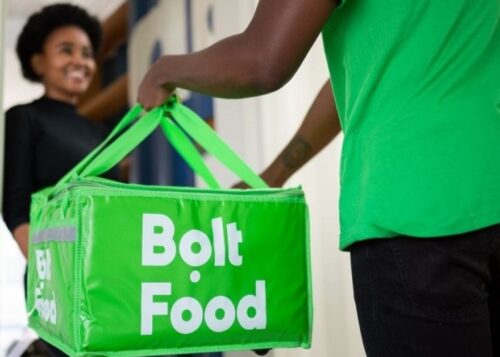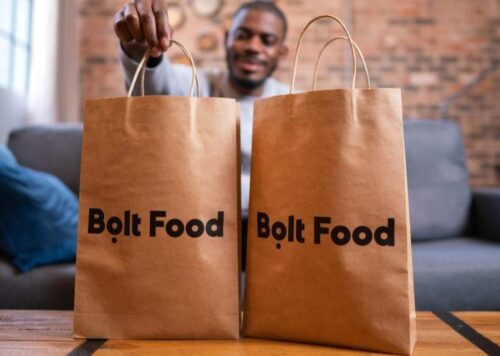Grocery delivery in Nairobi has yet to gain the same popularity as food delivery, primarily due to its niche appeal and high costs. While supermarket chains like Naivas and Carrefour have made attempts, roadside stalls, known locally as “vibandas” remain the preferred choice for most residents because of their affordability. However, online grocery shopping finds a market in Nairobi’s upscale neighborhoods, where such stalls are scarce, and convenience outweighs cost concerns.
Bolt Kenya aims to capitalize on this deprived market with Bolt Market, a service integrated into the existing Bolt Food app. According to a December 2024 company statement, the initiative is part of Bolt’s strategy to diversify its services, increase market share, and establish itself as a reliable platform for on-demand grocery delivery.
Before the COVID-19 pandemic, in-store shopping dominated Kenya’s retail landscape, with online grocery purchases limited to urban early adopters. The pandemic catalyzed a shift, pushing retailers to adopt delivery models and innovate with same-day delivery options to meet consumer demand for convenience and safety.
As of 2023, 9.3% of Kenyans shop for groceries online—a number expected to rise to 16.7% (10.5 million consumers) by 2027. Bolt Market’s entry aims to address this growing demand while competing against established players like Carrefour, Naivas, Glovo, and Uber Eats in a market defined by speed and convenience.

The grocery delivery sector in Nairobi faces significant challenges, including high delivery fees, which push away price-sensitive customers. Delivery charges often exceed KES 100 ($0.77), a price equivalent to a kilo of tomatoes, making it difficult to attract customers outside high-income neighborhoods. Players like Jumia Food have exited the market, mentioning stiff competition and unprofitability.
Bolt Market has adopted a cautious approach, focusing its initial rollout in Nairobi’s upscale area, Kilimani. Customers within a 10-kilometer radius—including neighborhoods like Upper Hill, South C, and Riverside—can order groceries via the Bolt Food app from 8:00 AM to 11:00 PM, with the option to schedule deliveries 24 hours in advance.
To attract customers, Bolt offers free delivery within a 3-kilometer radius and discounts of up to 80%. According to Edgar Kitur, General Manager of Bolt Food, this deliberate approach allows the company to gather data on service efficiency, customer satisfaction, and market viability before scaling operations. “Our average order value ranges between KES 300 ($2.32) and KES 38,000 ($293.78), reflecting a focus on high-end customers,” Kitur added.
Bolt Market plans to differentiate itself by offering over 2,000 products sourced locally, including fresh produce, household essentials, and beverages. The platform uses AI-powered logistics to optimize delivery routes, ensuring efficiency and quality. To address the issue of high delivery costs, Bolt is exploring pricing strategies such as discounts based on order size and distance. The company has also hinted at introducing subscription plans, which could offer regular customers predictable pricing and savings while providing Bolt with steady revenue and improved demand forecasting.
While the initial focus is on Kilimani, Bolt Market plans to expand to neighborhoods like Parklands, Eastleigh, and Lavington, with a broader rollout outside Nairobi under consideration. However, timelines remain flexible as the company evaluates market response and refines its services based on data from the Kilimani launch.
Bolt enters a market dominated by strong competitors like Carrefour and Naivas, which offer cost-effective delivery options and bundle groceries with other purchases. For instance, Carrefour charges minimal delivery fees for large orders and a small fee for orders over KES 1,000 ($7.73).
Despite the challenges, Bolt Market is banking on Nairobi’s growing demand for convenience and reliable service. The platform’s careful rollout in an affluent area underscores its intent to build a sustainable and scalable grocery delivery model.



